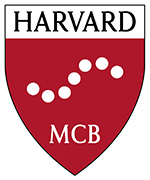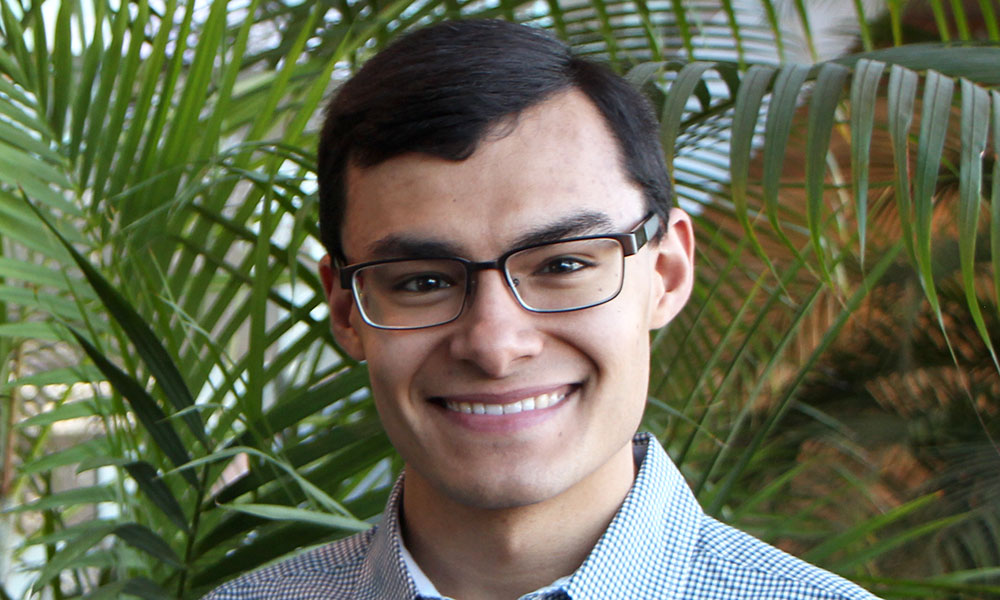MCB concentrator Nathan Grant (’20) recently authored a short paper (PDF) in the journal Molecular Genetics and Metabolism Reports, where he responds to an original study by Eisengart et al. on behavior in people with Hunter syndrome.
Hunter syndrome, also called mucopolysaccharidosis II or MPS II, is a genetic disorder that has only been diagnosed in about 500 people worldwide, but Nathan’s twin brother Nik Grant is one of them. In addition to helping his parents care for Nik, Nathan studies Molecular and Cellular Biology and advocates for the importance of including family members, especially siblings, in research on rare disorders.
“It’s such a rare disease that there’s not a lot of information out there, so what I do—it’s kinda become a tradition—is look online for articles,” Nathan says. He found the original Eisengart et al. study during a PubMed search in early December.
“It was really important and shocking to me to see this, because it was one of the first articles that I saw that talked about some of the challenging behaviors that people with MPS II have,” Nathan says.
Most research on Hunter syndrome focuses on its genetics—often overlooking the day-to-day experiences of people with Hunter syndrome and their caregivers. But the Eisengart et al. study centers human experience and catalogues behaviors like pushing, biting, and yelling—which exasperate and sometimes injure caregivers.
“I think the question that needs to be asked is: Why are these kids acting this way?” Nathan says. “Why are they being so aggressive? Is it because of pain? Or is it because of psychiatric disorders?”
Hunter syndrome affects every cell and every organ system in the body, but its effects in the brain are especially hard to address. The disorder is caused by a mutation in an enzyme that breaks down certain types of sugar waste. Without a functional version of the enzyme, the sugar waste builds up in cells throughout the body, causing problems in the heart, lungs, liver, and bones. Doctors have developed a method for infusing the Hunter syndrome enzyme into the blood. These enzyme infusions treat most of the body but cannot cross the blood-brain barrier. Even people who receive cutting-edge treatment for their Hunter syndrome still experience sugar build-up in their brain cells, which leaves most of them nonverbal.
Without words, nonverbal people often struggle to communicate—especially when they’re angry, frustrated, scared, or in pain. Sometimes they scream, kick, pull hair, or bite their caregivers. These scuffles can get intense. Nathan estimates that his family ends up taking Nik to the hospital every one to two months, hoping to find a way to calm Nik down.
“They’ve given him a lot of meds that have made him sedated, and that’s really affected his quality of life,” Nathan says. “That’s actually half the reason that I wrote this article, because I’m wanting to tell people, ‘Don’t just chalk this up to a psych disease…Are there other reasons?”
He recalls one particularly turbulent month where the doctors at the hospital were stumped—until they discovered Nik had a tooth infection. Once the infected tooth was removed, Nik had one of the calmest months that Nathan can remember. It’s likely that Nik was acting out because his tooth hurt, and no one was doing anything about it, Nathan says.
The Eisengart et al. paper mentions possible causes for these behaviors, but Nathan wanted to call more attention to the issue. Drawing on his personal experiences as Nik’s brother and his Harvard education, he wrote and submitted a response to the journal, which published it as “Correspondence.”
“Nathan’s op-ed piece is a much needed cri du coeur that I hope will galvanize more research into better palliative therapies not just for individuals with Hunter syndrome but also for other diseases associated with similar behavioral manifestations whose etiologies remain unknown,” says MCB professor and Nathan’s Tutor in Biochemical Sciences Vlad Denic.
In it, Nathan calls on researchers to look into reasons beyond aggression and adds that siblings should be included in research as key caregivers, alongside parents.
“What I’ve found from talking to other siblings and from my own personal experiences is that siblings are always there providing some sort of care,” he says. “As parents age, siblings become the primary caregiver, and I think that medicine and research haven’t looked beyond early life experience.”
The life expectancy for people with Hunter syndrome is increasing, he adds. Most people with untreated Hunter syndrome die by age 20, but Nik is 22 now, thanks to a bone marrow transplant he received as a toddler.
Nathan says his interdisciplinary Harvard education has helped him advocate in a more meaningful way. Though he is concentrating in MCB, he is minoring in Anthropology and conducting interview-based research as a member of Brian Skotko’s lab at MGH.
He hopes that publishing a piece in a journal read mostly by geneticists will raise awareness of the need for researchers with grounding in both biology and human experience of disability. “I think there’s so much research that focuses on the genetic basis, treatments, [and] getting the enzyme to the brain that they don’t focus at all on what it means to be a caregiver or living with these severe symptoms,” Nathan says.
Nathan adds that Denic and Assistant Director of Undergraduate Studies in MCB and CPB Dominic Mao have encouraged him to develop and apply an interdisciplinary lens to his advocacy.
Nathan was recently selected as a recipient of the 2020 Paul Williams Scholarship, a Harvard-UK Fellowship that enables graduating Harvard seniors to pursue graduate work at University of Cambridge’s Emmanuel College. Starting next fall, Nathan will read for a master’s degree in the Health, Medicine, and Society program there. He plans to continue researching and writing about the unmet support needs that people with Hunter syndrome and their caregivers face.
He is also a founder of the advocacy organization Siblings with a Mission and hopes to continue advocacy work as well. “I don’t think I’d be here at Harvard, much less studying the things that I’m studying, without my brother, because he’s the one who’s shown me what’s important for helping other people,” Nathan says. “Nik has a lot that he struggles with—having a lot of pain, not being able to talk, having symptoms that nobody knows how to treat—and I think that he could spend a lot of his days angry, a lot of his days just really sad and upset. But there are a lot of days when he smiles and he laughs…That’s what’s been inspiring to me. I really want to live by his example.”
.



